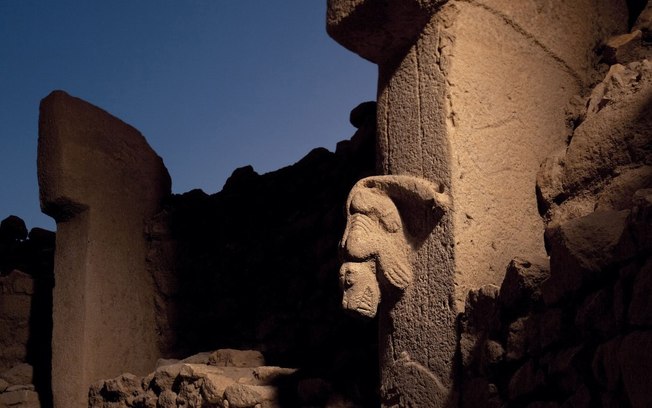Was There a Civilization On Earth Before Humans?
A look at the available evidence
The Atlantic
https://www.theatlantic.com/science/archive/2018/04/are-we-earths-only-civilization/557180/
"Hints Of Skull Cult Found At Göbekli Tepe, World's Oldest Temple"
http://paxonbothhouses.blogspot.com/2017/06/hints-of-skull-cult-found-at-gobekli.html
"Hints Of Skull Cult Found At Göbekli Tepe, World's Oldest Temple"
http://paxonbothhouses.blogspot.com/2017/06/hints-of-skull-cult-found-at-gobekli.html
Alan: The ancient Greek story of Atlantis and inter-related stories of The Great Flood told world-wide suggest a measure of antiquity usually confined to the discussion of myth rather than fact.
Given that these diluvian stories are all mythic, this limitation is probably appropriate.
Given that these diluvian stories are all mythic, this limitation is probably appropriate.
However, when - already 60 years of age - I came upon the archeaological facts of Göbekli Tepe (in present day Turkey) my world was turned upside down.
Here were 12,000 year old remains of a complex city that had to be the product of a long-standing culture exhibiting remarkable sophistication, artistry and considerable math-engineering skills in order to "put it together."
Here were 12,000 year old remains of a complex city that had to be the product of a long-standing culture exhibiting remarkable sophistication, artistry and considerable math-engineering skills in order to "put it together."
But it was just fifty years ago, as an undergraduate at the University of Toronto, when the scholarly world assumed that civilization had begun between 3000 and 5000 years before Christ.
Certainly not 10,000 years B.C.
Certainly not 10,000 years B.C.
By training, I am a Latin Americanist and for the last 20 years have operated a small educational travel company called "Yucatan Adventure."
I have explored nearly all the great Mayan ruins in the northern half of the Yucatan.
One ruin I have not visited since my arrival there in 1970 is Tulum, the "only" Mayan city to border the sea.
I have not gone back in the intervening 48 years because when friend Fran and I "pulled into Nazareth" half a century ago, there was no entrance gate, no ticket taker, just one thatched roof, dirt-floor choza on the edge of the clearing - home to a single family that tended the survival needs of straggling adventurers.
Fran and I "moved in" and "called it home."
Despite the astonishing beauty of Tulum, it does not require a knowledgeable eye to realize that the structures are very "late," built centuries after the Maya had begun to decline.
Throughout Tulum, the stones were visibly rough cut and the joint-work correspondingly shoddy.
Incan Stone Work Photo Album. No Mortar. No "Knifable" Clefts. And Every Stone Cut Differently
Superimposing the fate of Tulum upon Göbekli Tepe, I see this 12,000 year old "Turkish" urban center not as a "beginning" but as the end state of long decline.
It would be easy to argue that this decline had lasted no longer than centuries - and certainly no more than a few millennia.
But it does not require a great "leap" to see Göbekli Tepe as the last civilized manifestation of a culture that might have been tens of thousands -- or even hundreds of thousands - of years old.
Which conjures this speculation...
What if the biblical account of The Great Flood refers to an event that happened tens of thousands or hundreds of thousands of years ago and Noah's mythic family came to rest near Göbekli Tepe, a not impossible fusion of the mythic-legendary record with what we factually know of this inexplicably ancient city not far from Mt. Ararat where -- according to the received wisdom, Noah's ark settled in the land we now call Turkey.
What if the biblical account of The Great Flood refers to an event that happened tens of thousands or hundreds of thousands of years ago and Noah's mythic family came to rest near Göbekli Tepe, a not impossible fusion of the mythic-legendary record with what we factually know of this inexplicably ancient city not far from Mt. Ararat where -- according to the received wisdom, Noah's ark settled in the land we now call Turkey.

No comments:
Post a Comment